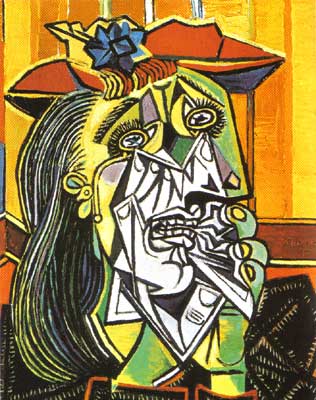A rehash of Schaeffer's earlier work

but test everything: hold fast to what is good. Abstain from every form of evil: 1 Thessalonians 5:21-22
Wow, it took me a grand total of four hours to read this book, which must be a record for me, or more probably it has got to do something with it being a short book covering much of the same ground that Schaeffer covered in his book The God Who is There, and also with me having read it before. However, the other thing is that now that I have a better understanding of the modern philosophers I have a better understanding of what Schaeffer is getting at with this book. Mind you, I do not necessarily agree with everything that he says because he seems to reject pretty much everything that has come out of humanities examination into the world (though he does make mention that he is an admirer of science, and appreciates the art of Pablo Picasso). I have mentioned a Bible passage above in relation to this particular book (which as I mentioned, covers much of the same ground that he does in the previous book) because I do not think that all of the philosophy should be discarded, but should be examined carefully, and that which aligns with Christianity should be accepted, and that which requires altering, should be altered accordingly.
Schaeffer basically indicates that the problem of modern man goes back to Thomas Aquinas when he created a division between nature and grace: that is that the things of God exist on a higher level while the things of the Earth exist on a lower level. This, however, is nothing new because it goes back to the Platonic teaching of the theory of forms (a theory that I accept). The platonic idea is that the things of the Earth are a shadow of the reality and that elsewhere there exists a perfect form of everything. This is very much the case as I understand it because the world in which we live is pretty much a shadow of the ultimate reality of God.
The idea of this twofold universe, as Schaeffer points out, is outlined in the Rapheal painting known as the 'School of Athens':

In this painting our attention is drawn to the two figures in the centre, one pointing up (Plato) and one pointing down (Aristotle):

What Schaeffer is indicating is that this painting defines the way humanity began to think after the writings of Aquinas. In this thinking we divided the world into the upper story (as represented by Plato and his theory of forms) and the lower story (as represented by Aristotle and his more naturalistic philosophy). This, Schaeffer believes, is a bad thing. I do not think that this is the case, though I can understand where he is coming from because what Christ has done was to bring these two layers together so that God and humanity once again can have a relationship.
As a side note though, I have discovered this, which indicates that each of the figures in the painting represents one of the famous philosophers of the Ancient World:

Schaeffer seems to hold the Reformers in high regard though because he believes that their work attempted to remove this divide and bring the two sides back together . This may have been the case but the problem was that the ideas of the Renaissance ended up holding sway which resulted in the Enlightenment thinking of which he hates. However, my argument is that without the Renaissance, the Reformation could never have happened, and the Reformation, by freeing us of captivity to Papacy, paved the way for the Enlightenment. He speaks out against the German philosophers but seems to forget that it was out of Germany and the Germanic peoples that the Reformation came. As I have said elsewhere, unfortunately, you cannot have the Reformation without the Renaissance, and if you want the Reformation, you have to be prepared for the Enlightenment.
I could go on, but I would simply be going over the same ground that I have gone over in my response to 'The God Who is There'. Needless to say, he does bring in Kant and Rousseau, but once again, you cannot simply reject all of their work. You need to understand where they are coming from, and then work with them because their ideas, their thoughts, and their conclusions, have some merit. For instance, Kant riled against the idea of letting people think for you, and argued that Enlightenment is being able to think for oneself. Rousseau was appalled by the way that the nobility treated the poor as animals to watch as if in a zoo and wrote against that.
Mind you, he did make comment that while he may not have liked Picasso's philosophy, he still considered him an artist of extra-ordinary talent.



